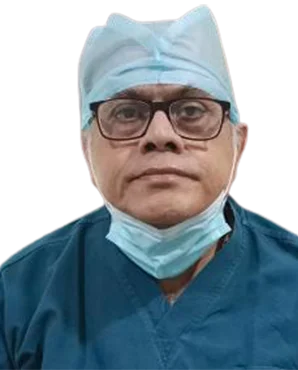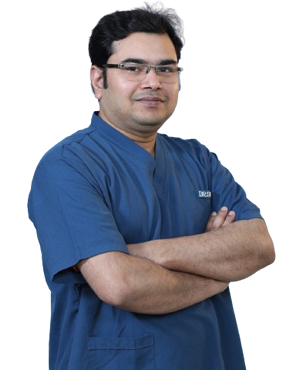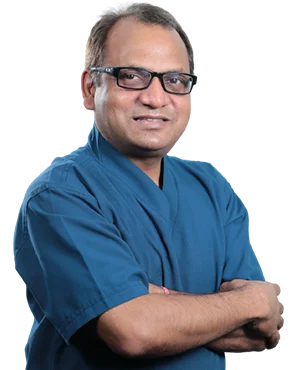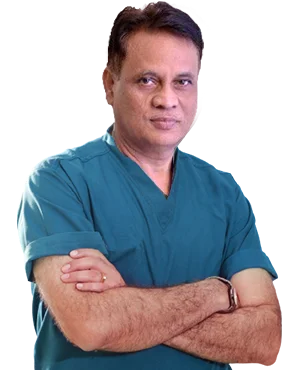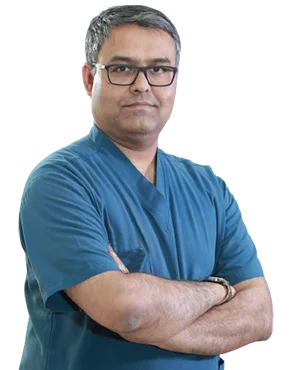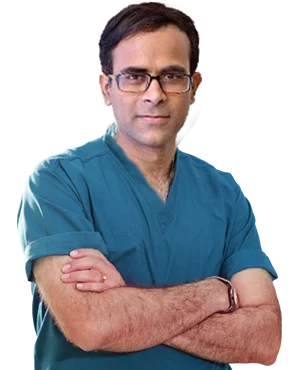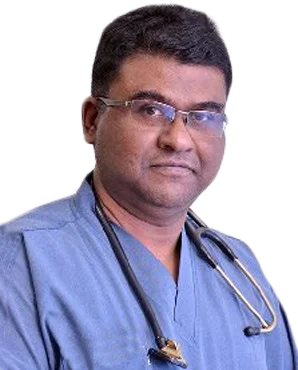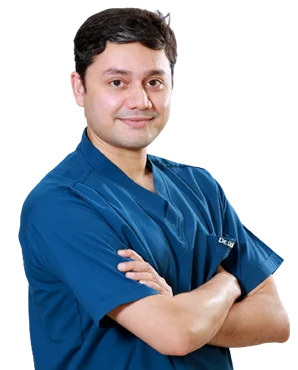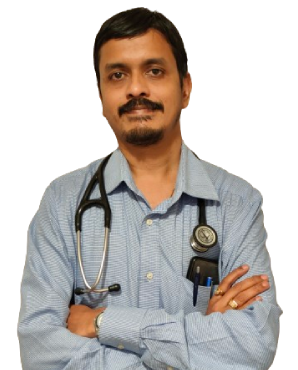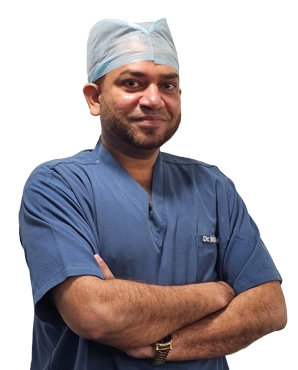Also called Myocardial Infarction, Heart Attack occurs when blood flow to the heart is blocked. This is caused usually due to the buildup of plaque (fat, cholesterol and other substances) inside the arteries. The plaque eventually breaks away and forms a clot that results in a blocked artery and subsequent heart attack
Symptoms of Heart Attack
Symptoms of heart attack vary in different people. Some people may experience mild chest pain, while in others it can be severe. Some people do not have any symptoms. Some attacks strike suddenly, while some show warning signs weeks ahead. The common symptoms include:
- Pressure/tightness/pain in chest, neck, shoulder or jaw
- A squeezing or aching sensation that spreads to the neck and arms
- Nausea, indigestion, heartburn or abdominal pain
- Shortness of breath
- Profuse sweating
- Exhaustion
- Lightheadedness or dizziness
Following factors are associated with increased risk of heart attack
- Age: Men over 45 years of age and women over 55
- Tobacco use: Active and passive smoking
- High blood pressure: Over a period of time high blood pressure can damage arteries that transmit blood to the heart.
- High blood cholesterol, triglyceride levels: High LDL (the bad cholesterol) is likely to narrow arteries. Triglyceride is a kind of blood fat that increases risk of blocked arteries. HDL (the good cholesterol), however, decreases risk
- Obesity: This is associated with high blood pressure, sugar and cholesterol. A mere 10% decrease in body weight can reduce risk
- Diabetes: High blood sugar levels increase risk of attack
- Family history: If parents, grandparents or siblings have suffered early heart attack, your risk is greater
- Stress: How you respond to stress is crucial to the well-being of your heart
- History of Preeclampsia: High blood pressure during pregnancy can increase your lifetime risk of a heart attack
- Autoimmune condition: Rheumatoid arthritis or lupus play a role in increasing risk
Silent Heart Attack
Sometimes a heart attack does not show the obvious symptoms and occurs silently – this is referred to as a ‘Silent Heart Attack’. Such episodes either show no symptoms or have minimal, unrecognized symptoms. Some studies suggest that though silent heart attacks are more common in men, the rate of fatality is higher in women. The risk factors, however, remain the same and include:
- High blood pressure
- High cholesterol
- Family history
- Smoking
- Obesity
- Age
A Silent heart attack is likely to do more damage to the heart muscles, since often it is ignored. It also has higher risk of mortality. Controlled blood pressure, sugar, cholesterol and regular check-ups are a must to prevent silent attacks.
It is important to be aware of the risks and seek medical advice if you experience non-specific symptoms like back pain, extreme fatigue, flu-like condition, breathlessness, and recurring heartburn, stomach upset or indigestion.
Heart Attack & Diabetes
People with Diabetes are more likely to experience silent heart attack. Diabetic Neuropathy, often a result of long term diabetes, prevents a person from experiencing the usual symptoms of a heart attack. Neuropathy is damage to the nerves leading to the heart, bladder and blood vessels. Owing to this a person with diabetes is likely to experience very mild or no symptoms at all.
Heart Attack is an emergency that needs immediate medical help to prevent permanent damage to the heart muscles.
Complications of a heart attack
A heart attack if not treated within the golden period can lead to a number of complications
- Abnormal heart rhythms: Also called arrhythmias, these are electrical ‘short circuits’ that disturb the heart’s rhythm. They can be fatal.
- Heart Failure: Damage to the heart tissue would mean that the remaining heart muscles cannot pump enough blood. This condition may be temporary or permanent depending on the degree of damage.
- Sudden cardiac arrest: When the heart suddenly stops due to electrical disturbance.
Diagnosis
If you show symptoms of heart attack, your pressure will be checked and you will be hooked to a heart monitor. Following investigations will be carried out by the emergency team:
- Electrocardiogram (ECG): Records the electrical activity of your heart. Since an injured heart muscle does not conduct electrical impulses normally, an ECG is likely to show up a heart attack in progress
- Blood tests: Damage caused by a heart attack will result in certain proteins leaking into the blood. Blood tests will be done to check for these enzymes
- Chest X-ray: Allows the Doctor to check the size of your heart and see if there is any fluid accumulation in your lungs
- Echocardiogram: Using sound waves to produce video image of the heart. This can help identify if any area of the heart is damaged and not pumping normally
- Angiogram: A liquid dye is injected into the arteries leading to the heart through the wrist or groin. This makes any blockage in the heart visible on X-ray
- Cardiac CT/MRI: These are non interventional method to measure the extent of damage caused by a heart attack.
Treatment
Each minute after a heart attack is crucial as extent of damage to the heart muscles depends on how quickly blood flow is restored
Medicines given may include
- Aspirin to reduce blood clotting
- Thromobolytics – clot busters to release the block
- Anti-platelet agents for preventing new clots
- Other blood thinning medications like Heparin to make blood less sticky, hence less likely to clot
- Pain relievers (like morphine) if required
- Nitroglycerin (usually used for angina) can improve blood flow to the heart by dilating the blood vessels
- Beta blockers to relax the heart muscles, slow heartbeat and decrease blood pressure
- ACE inhibitors to reduce pressure and stress on heart
- Statins for controlling cholesterol
Interventions
Depending on a number of factors which may include your age, severity of the attack and co-morbidities, the Doctor may suggest an interventional procedure
PCI or Primary angioplasty, often done immediately after angiogram, involves inserting a balloon through a catheter to inflate the blocked artery. A mesh-like stent is then inserted to keep the artery permanently inflated, thus allowing unhampered blood flow.
Emergency Coronary artery bypass surgery (CABG) may sometimes be required immediately after or during heart attack. Usually, however, the surgery is performed about 3-7 days after the heart attack to allow the heart to recover from the attack. The procedure involves creating an alternative path for blood flow by sewing the arteries and veins in a place beyond the block.

(Prof.) Dr. Rabin Chakraborty
Behala, Kolkata

Dr. Dilip Kumar
Salt Lake, Kolkata

(Prof.) Dr. Rabin Chakraborty
Behala, Kolkata



